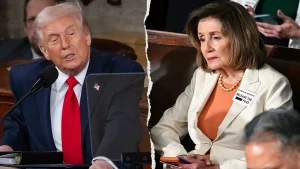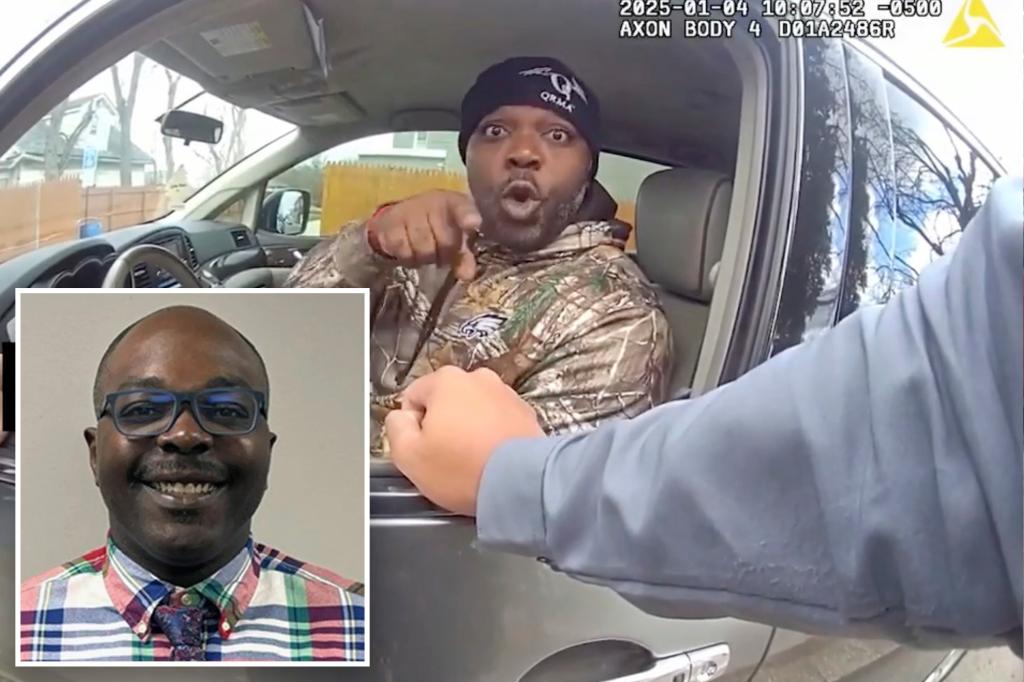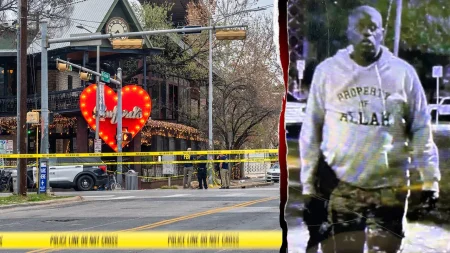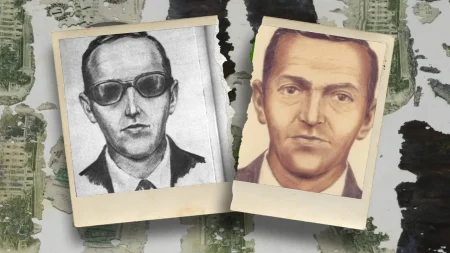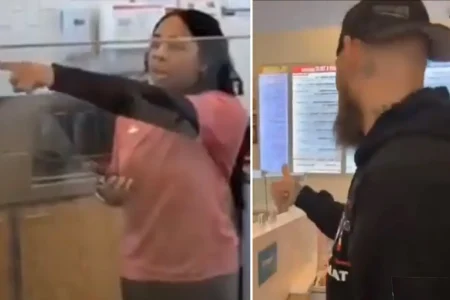Paragraph 1: The Traffic Stop and Initial Confrontation
On the evening of January 4th, in the quiet borough of Paulsboro, New Jersey, a seemingly routine traffic stop escalated into a dramatic confrontation between a local councilman and a police officer. Councilman Theodore D. Holloway, a 12-year veteran of the borough council, was pulled over near the intersection of Penn Line Road and West Adams Street for allegedly failing to stop at a stop sign. Body camera footage captured the incident, revealing Holloway’s immediate and agitated reaction. Instead of cooperating with the officer, who appeared to recognize him, Holloway launched into a profanity-laced tirade, asserting his authority and position within the town’s hierarchy.
Paragraph 2: Councilman Holloway’s Claims of Authority and Threats
Holloway’s outburst centered on his perceived power over the officer. He repeatedly proclaimed, "I’m the one that brought you on! I put you on!", claiming responsibility for the officer’s hiring and positioning himself as the officer’s "boss." This assertion of authority was further punctuated by threats to contact Police Chief Gary Kille. Holloway’s repeated insistence on his status as an elected official underscored his belief that he was above reproach and entitled to special treatment. He argued vehemently that the stop was unwarranted, dismissing the alleged traffic violation as merely "an alleged" infraction, emphasizing that he had indeed stopped at the stop sign.
Paragraph 3: The Officer’s Response and Escalation of the Situation
Faced with Holloway’s escalating hostility and increasingly irrational behavior, the officer maintained a relatively calm demeanor, repeatedly asking Holloway to explain his outburst. However, Holloway’s continued aggressive and disrespectful language, including shouting and cursing, only served to heighten the tension. As the situation deteriorated, the officer wisely retreated to his patrol car and requested backup, recognizing the need for additional support in dealing with the volatile councilman. Holloway’s agitated state persisted even with the arrival of a supervising officer, whom he immediately confronted, demanding recognition of his position and influence within the community.
Paragraph 4: Official Response and Community Fallout
The incident sparked controversy and condemnation within Paulsboro. Mayor John Giovannitti publicly criticized Holloway’s behavior, emphasizing that elected officials should be held to a higher standard and are not entitled to preferential treatment. He acknowledged the impropriety of Holloway’s language and his attempts to leverage his position to avoid accountability. While acknowledging that Holloway’s actions were not illegal, the mayor confirmed that the town had retained legal counsel to review the incident. The fallout extended beyond official channels, with both Holloway and the police officer receiving threats from community members, highlighting the deep divisions the incident created within Paulsboro.
Paragraph 5: The Aftermath and Councilman Holloway’s Apology
The incident’s aftermath saw both Holloway and the involved police officer facing undue pressures. The officer was subjected to criticism for his handling of the situation, while Holloway faced public scrutiny and condemnation for his behavior. The mayor revealed that threats against both individuals were reported and turned over to the police for investigation. While Councilman Holloway initially avoided public comment, Mayor Giovannitti conveyed that Holloway had expressed remorse for his actions, attributing his outburst to a "bad moment." This acknowledgment of wrongdoing, however, did little to quell the ongoing debate and tension within the community.
Paragraph 6: Resolution and Lingering Questions
Ultimately, Holloway received a citation for an expired vehicle registration but was not charged with any traffic violation related to the initial stop. This outcome further fueled the controversy, with some residents questioning whether Holloway received preferential treatment due to his position. The incident left a lingering stain on the relationship between the community and its elected officials, and raised broader questions about accountability and the appropriate conduct of those in positions of power. While the immediate crisis eventually subsided, the incident served as a stark reminder of the potential for even minor traffic stops to escalate into complex and highly charged encounters, particularly when those involved hold positions of public trust.

